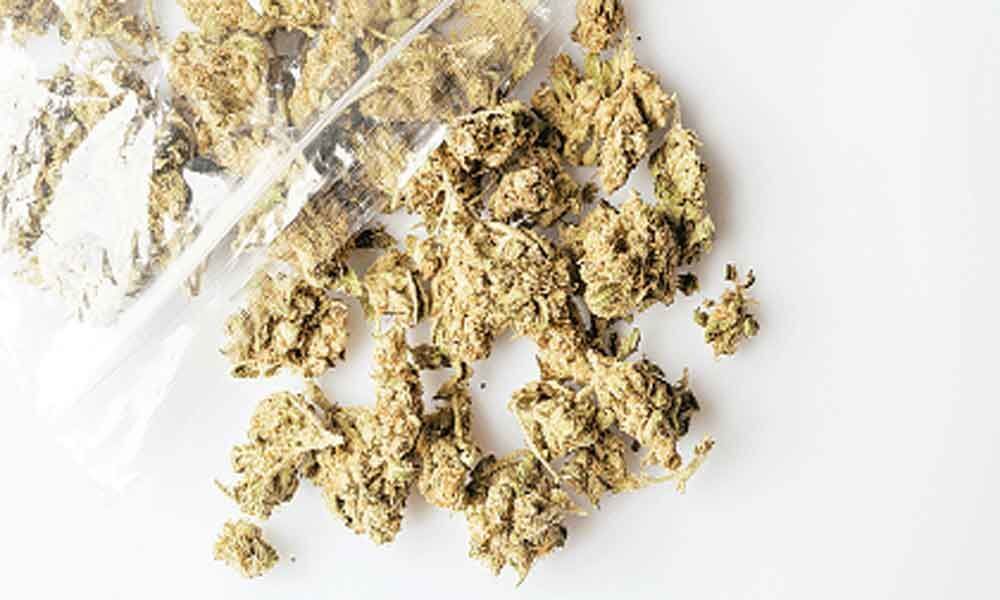Live
- IND vs AUS Boxing Day Test 2024: Sam Konstas Debuts, Travis Head’s Fitness in Question
- Congress Challenges Election Rule Amendments In Supreme Court
- Jaishankar’s US Visit: Key Diplomatic Engagement Amid Leadership Transition
- Orthodox Church Bishop Criticizes PM Modi’s Christmas Celebration Participation
- Janhvi style & grace takes centre stage
- Allu Arjun’s Pushpa 2 Becomes First Hindi-Dubbed Film to Cross Rs 700 Crore
- ‘Legally Veer’ pre-release event creates buzz
- ‘Chinni’ from ‘Daaku Maharaaj’ that strikes a chord with audience
- A raw and intense love story ‘Premikudu’ set to captivate audiences
- Apple iPhone 15 Now Available for Rs 26,999 on Flipkart – Grab the Deal Today!
Just In

Legalisation of recreational marijuana is associated with an increase in its abuse, but does not significantly change health care use overall, a recent study suggests.
Legalisation of recreational marijuana is associated with an increase in its abuse, but does not significantly change health care use overall, a recent study suggests.
In a review of more than 28 million hospital records from the two years before and after cannabis was legalised in Colorado, UC San Francisco (UCSF) researchers found that Colorado hospital admissions for cannabis abuse increased after legalisation in comparison to other states.
However, taking the totality of all hospital admissions and time spent in hospitals into account, there was not an appreciable increase after recreational cannabis was legalised.
The study also found fewer diagnoses of chronic pain after legalisation, consistent with a 2017 National Academy of Sciences report that concluded substantial evidence exists that cannabis can reduce chronic pain.
"We need to think carefully about the potential health effects of substantially enhancing the accessibility of cannabis, as has been done now in majority of states," said senior author Gregory Marcus, associate chief of cardiology for research in the UCSF Division of Cardiology.
According to Marcus, the findings, published in the Journal of BMJ, demonstrate several potential harmful effects that are relevant for physicians and policymakers, as well as for individuals considering cannabis use.
According to the 2014 National Survey on Drug Use and Health, more than 117 million Americans, or 44.2 per cent of all Americans, have used cannabis in their lifetime, and more than 22 million Americans report having used it within the past 30 days.
While its use is a federal crime as a controlled substance, 28 states and the District of Columbia now allow it for treating medical conditions. Nine of those states have legalised it for recreational use.
To understand the potential shifts in health care use resulting from widespread policy changes, Marcus and his colleagues reviewed the records of more than 28 million individuals in Colorado, New York and Oklahoma from the 2010-2014 Healthcare Cost and Utilisation Project, which included 16 million hospitalisations.
They compared the rates of health care utilisation and diagnoses in Colorado two years before and two years after recreational marijuana was legalised in December 2012 to New York, as a geographically distant and urban state, and to Oklahoma, as a geographically close and mainly rural state.
The researchers found that after legalisation, Colorado experienced a 10 per cent increase in motor vehicle accidents, as well as a 5 per cent increase in alcohol abuse and overdoses that resulted in injury or death. At the same time, the state saw a 5 per cent decrease in hospital admissions for chronic pain, Marcus said.
According to the team of researchers, the study findings can prove to be beneficial in guiding future decisions regarding cannabis policy.

© 2024 Hyderabad Media House Limited/The Hans India. All rights reserved. Powered by hocalwire.com







